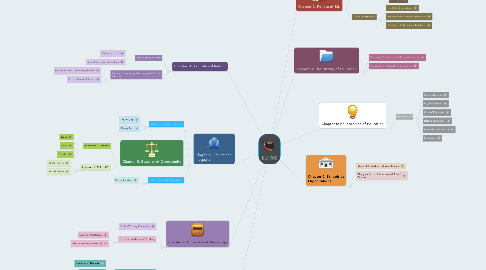
1. Chapter 4: The Sociology of Education
1.1. Theories of Sociology in Education
1.1.1. Interactional Theories
1.1.2. Conflict Theories
1.1.3. Functional Theories
1.2. Effects of Schooling on Individuals
1.2.1. Knowledge and Attitudes
1.2.2. Teacher Behavior
1.2.3. Student Peer Groups and Alienation
1.2.4. Inadequate Schools
1.2.5. De Facto Segregation
2. Chapter 7: Curriculum & Pedagogy
2.1. Social Efficiency Curriculum
2.2. Dominant Traditions of Teaching
2.2.1. Mimetic (Traditional)
2.2.2. Transformative (Progressive)
3. Chapter 9: Educational Inequality
3.1. Cultural Deprivation Theories
3.1.1. Theory One
3.1.2. Theory Two
3.2. Chapter 8: Equality of Opportunity
3.2.1. Educational Outcomes
3.2.1.1. Class
3.2.1.2. Race
3.2.1.3. Gender
3.2.2. Responses to Cole (1982)
3.2.2.1. Round Two, A
3.2.2.2. Round Two, B
3.3. School-Centered Explanations
3.3.1. School Funding
4. Chapter 10: Educational Reform
4.1. School-Based Reforms
4.1.1. Charter Schools
4.1.2. School-Business Partnerships
4.2. Societal, Community, Economic, and Political Reforms
4.2.1. Full Service and Community Schools
4.2.2. School Finance Reforms
5. Chapter 2: Politics of Ed.
5.1. Purposes of Education
5.1.1. Intellectual
5.1.2. Political
5.1.3. Social
5.1.4. Economic
5.2. Liberal Perspectives
5.2.1. The Role of the School
5.2.2. Explanations of Unequal Education
5.2.3. Definition of Educational Problems
6. Chapter 3: The History of Education
6.1. Education for Women and African-Americans
6.2. Conservative Historical Interpretations.
7. Chapter 5: Philosophies of Education
7.1. Existentialism
7.1.1. Generic Notions
7.1.2. Key Researchers
7.1.3. Goal of Education
7.1.4. Role of the Teacher
7.1.5. Methods of instruction
7.1.6. Curriculum
